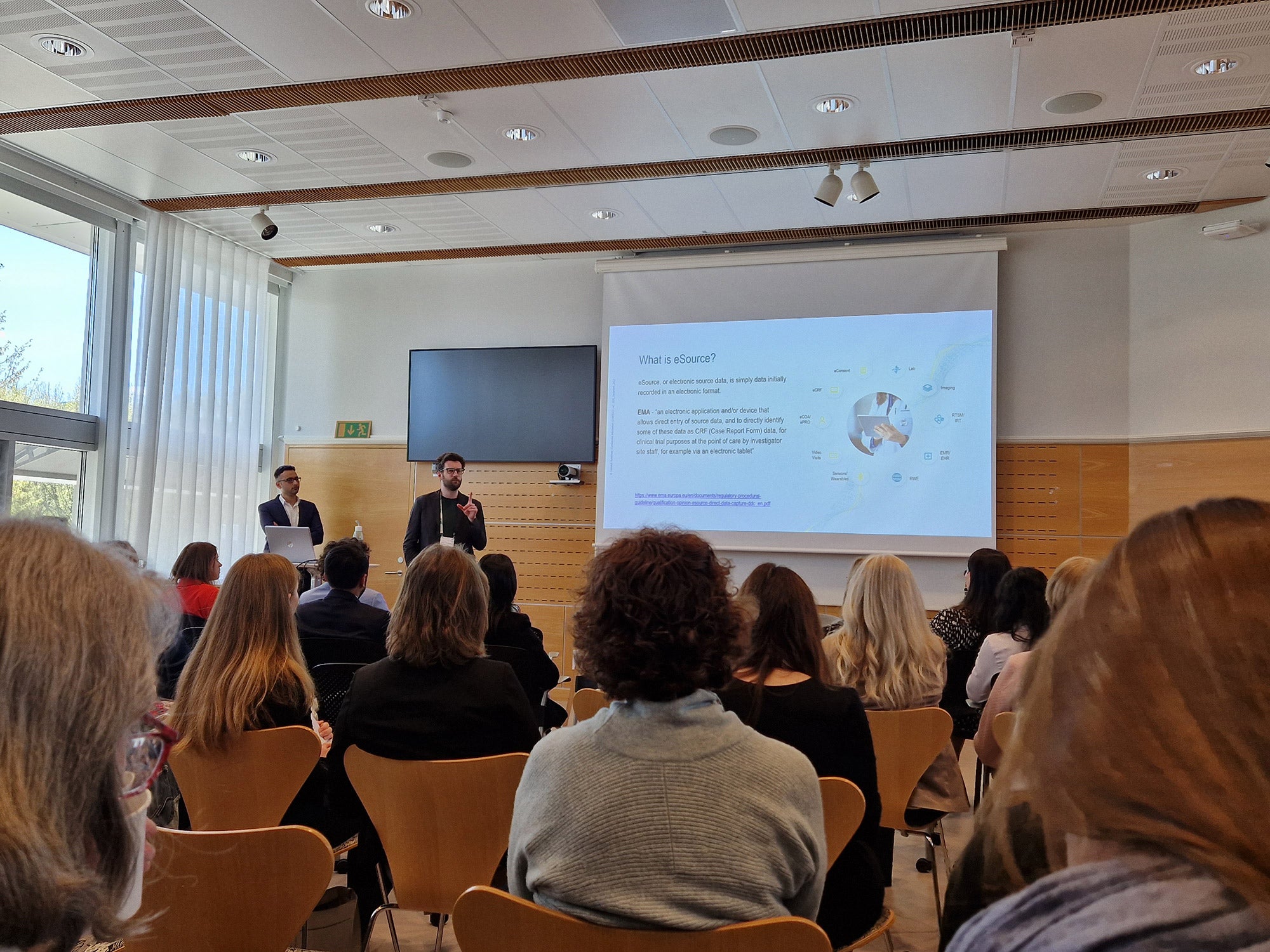SCDM EMEA 2023 Conference Recap: The Future of Clinical Data Management

At an insightful SCDM (Society for Clinical Data Management) EMEA conference last week, over 200 attendees came together from pharma/biotechs, CROs, regulators, and technology providers on the AstraZeneca campus in Gothenburg, Sweden.
The Medidata team had the privilege of joining the pre-conference Leadership Forum with in-depth discussions on transforming clinical data management organizations into clinical data science organizations, with great insights on how to get executive leadership buy-in and deliver ROI. The afternoon of the Forum changed tack to hear from the regulators about the latest guidance and initiatives impacting clinical research, such as the European Health Data Space (EHDS) and ACT EU (Accelerating Clinical Trials in the EU).
There was also a fascinating discussion on the regulatory implications of AI (artificial intelligence) and ML (machine learning), which will be an ongoing topic where sponsors, CROs, and vendors must work with regulators to define a way forward that safely enables innovation. The regulatory panel concluded with a discussion about how to use EHR (electronic health record) and other real-world data (RWD) in clinical trials when the collection of that data is not governed by GCP (Good Clinical Practice) guidelines.
The main conference opened with a keynote address by Jo Coutuer of Data Merit from the banking industry on how he managed a digital and data transformation journey. Jo shared great insights on how to get executive support and deliver incremental value.
Medidata experts were featured throughout the agenda, with Paul O’Donohue, Senior Director, eCOA Product & Science, joining speakers from Janssen to discuss the Era of eSource - Think Beyond EDC. Olgica Klindworth, VP, Data Quality & Risk Monitoring, discussed how AI can assist data managers but keep them as the ‘human in the loop,’ overseeing machine-generated suggestions and feeding their decisions back to further train machine learning models.
Phil Coran, Principal, Global Compliance and Strategy, joined speakers from AstraZeneca, Alexion, ICON, and Parexel to discuss many different facets of data privacy governance and challenges in clinical trials. And Kirsty Lyne, Solution Consultant, gave a demonstration of Medidata’s Patient Data Surveillance capabilities to a packed room, including building complex listings across multiple datasets from multiple sources without programming, using AI to assist with the reconciliation of adverse events, medical history, and concomitant medication datasets, and reviewing comprehensive patient profiles with the ability to track if data is clean or not on a patient level.
Across the day and a half of engaging breakout sessions discussing the future of clinical data management, there were common themes around DCTs (decentralized clinical trials), the explosion in non-EDC or ‘external’ data sources, the growth in eSource, the use of AI and machine learning, and the impact these developments have on clinical data management practices. There was much discussion on using AI/ML and regulatory requirements. There is generally an agreement that AI/ML is here to stay, but there needs to be responsible development, validation, and transparency—demystifying the ‘black box’ of AI/ML algorithms.

It was evident that a significant challenge for clinical trials is managing data collection, cleaning, and transformation from multiple sources, compounded by selecting technologies from different vendors. Taking such an approach requires building a network of integrations or data transfers, each requiring a DTA (data transfer agreement) and often complex data transformations to standardize data formats for review and analysis. All of this introduces considerable latency, resulting in data being out of date by the time it’s consolidated for review.
Because of the increased variety, volume, and velocity of data collected, there’s also a need for clinical data management functions to get up to speed with RBQM (risk-based quality management) practices and to apply risk-based strategies to data review and cleaning. There are also multiple challenges and considerations around data privacy and patient consent, particularly for secondary or future uses of data such as synthetic control arms or cross-study analyses.
But there’s hope for the future of clinical data management, with many challenges addressed by transformational process changes and technology solutions that design data flow upfront, transform and integrate data as it’s captured or ingested, and enable near real-time review and reconciliation—assisted by AI and ML.
Read about Medidata’s solutions for the future of clinical data management.
Explore Related Articles
Contact Us

